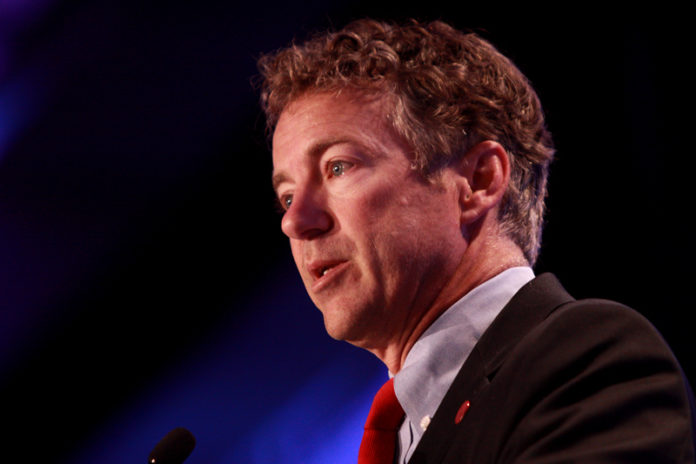In his push to be seen as a mainstream Republican candidate for the presidency in 2016, libertarian-leaning Senator Rand Paul of Kentucky has thrown out his pledge to cut defense spending–and is proposing a defense budget increase of $190 billion, an increase of roughly 16%.
Other Republicans, like Senator Marco Rubio of Florida–who is also said to be entertaining a presidential run in 2016–have pledged similar increases in the defense budget.
Since his first election to the Senate in 2010, as part of the Tea Party-backed conservative wave, Rand Paul–the son of former Rep. Ron Paul, a libertarian icon and perennial presidential candidate–has been a different kind of Republican. In mid-2011, for example, he pledged to slash a number of major federal departments, and made some cuts to what he saw as a bloated defense budget as part of a “restructuring” of the Pentagon.
He also gained widespread attention in 2013, when he launched a dramatic 13-hour filibuster on the Senate floor against Obama’s increased use of drones, which killed an American citizen, Anwar al-Awlawki, who was a suspected terrorist but not actively engaged in combat, back in 2011 in Yemen–a violation of his constitutional right to due process and a fair trial. Paul’s filibuster put him at odds with hawks from both parties, and solidified his reputation as the sole libertarian voice in the Senate.
It remains to be seen whether his sprint to embrace mainstream conservative ideas will help or hurt his eventual candidacy. Paul inherits a large list of supporters from his father’s campaigns, but needs to stay sufficiently libertarian to engage and mobilize their support. But, on the flip side, he also needs to grow his support among conservatives in order to have a realistic chance at the Oval Office.
Paul is clearly hoping that his support among libertarians is unwavering enough that they’ll stick with him regardless of his new policy agenda.
Paul, for his part, shrugs off criticism. “For me,” he says, “the priority is always national defense.”






























